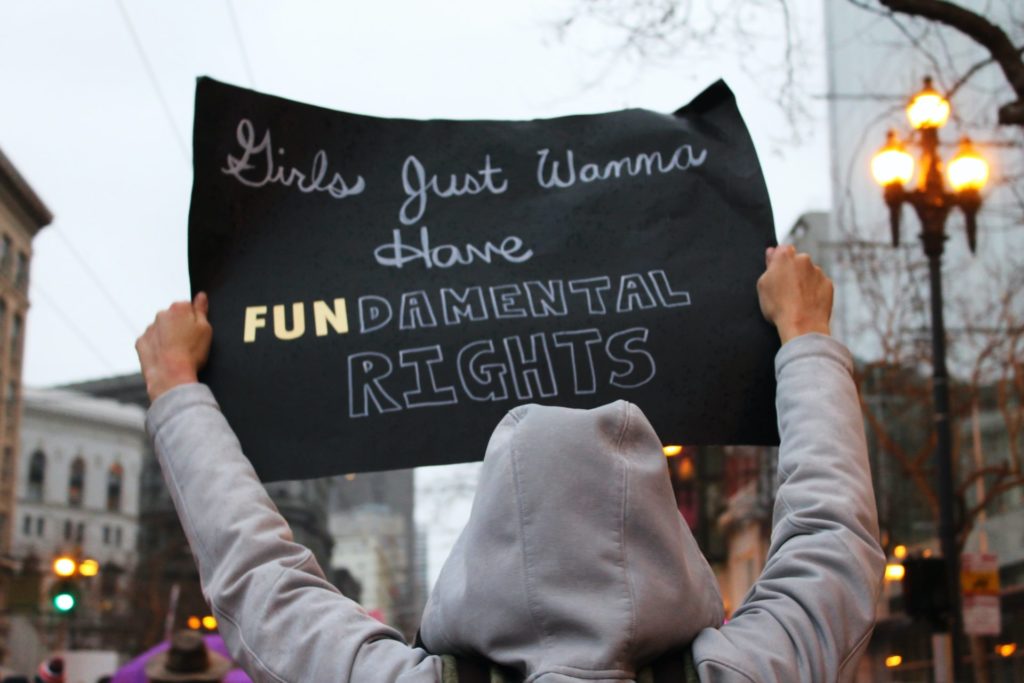A union of feminist collectives has called for the boycotting of bars and clubs on Friday 12 November in the wake of a rising number of sexual violence testimonies being shared online.
In the last three weeks, a wave of personal accounts regarding sexual assaults in bars and clubs in Brussels resulted in protest marches, managers implementing some measures to improve safety and politicians holding emergency meetings. But for the collectives behind these actions, more needs to be done.
"These testimonies are here to remind us that we have had enough. Today, our anger knows no limits," various activists who have united as l’Union Féministe Inclusive Autogérée or the Self-Managed Inclusive Feminist Union (UFIA) said in a video released on Monday.
"You, managers of bars and clubs, we see you. The only way to make you react is to affect your precious wallet. This is why we are calling on all women, non-binary people and gender minorities to boycott all clubs and bars on Friday."
View this post on Instagram
Alongside the boycott, an authorised rally is being organised, starting on Friday at 8:00 PM on Place de l'Albertine near Mont des Arts.
The movement was kickstarted after accounts of women being drugged and sexually assaulted by an employee at two bars in the Cimetière d'Ixelles neighbourhood were shared online.
This resulted in a flood of similar testimonies from women who also experienced sexual violence on nights outs, which were shared on social media platforms including the Instagram account "Balance ton bar," a permanent online platform on which victims can share their experiences.
'Political awakening'
UFIA, assembling individual activists as well as associations, has been meeting in the last few weeks to discuss what targeted, political action is needed to resolve the issue. "We are calling for a political awakening regarding the problem of sexual violence as a systemic phenomenon in our society," the collectives' activists said in a press release.
"We sincerely hope politicians will be ready to give us strong answers and reactions. We will no longer allow our society as a whole to turn a blind eye to the violence suffered by the majority of its population."
On Monday, the union also sent letters to the mayors of Brussels' 19 communes demanding a revising of policy measures, as "it is clear that sexual violence has no borders."
Related News
- Just 6% of cases reported: Sexual harassment 'normalised' in Belgium
- Amid backlash, Brussels police chief promises to do better for sexual assault victims
- 'Can't keep count': Instagram page for sexual assault testimonies overwhelmed
"We note with dismay that the majority of political authorities are not aware of systemic gender violence, nor the intersectional feminist framework needed to address it," they said.
They're asking for an intersectional approach that takes into account all the dynamics of oppression including racism, classism, xenophobia and other forms of discrimination and violence. They've also called on mayors to mobilise resources on these issues by giving people at the centre of such debates a voice.
UFIA also stressed the importance of systematically identifying, recording and sanctioning problematic institutions and their staff members, and training not only the judiciary but also the employees who come into first-hand contact with such crimes.
The union volunteered to not only meet with mayors to develop its demands in person, but to also work together to research and implement concrete, sustainable and structural solutions.
"We want radical and immediate change because this scourge has been going on for too many centuries and we can no longer afford it," the letter concluded.

